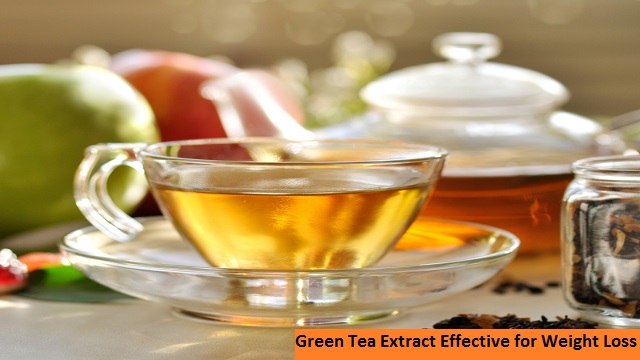
Is Green Tea Extract Effective for Weight Loss?
Green tea is among the most popular alcoholic drinks in the world. The prevention of cancer, cardiovascular disease, anti-inflammatory effects, antioxidative properties, and neuroprotective effects are just a few of its many claimed health advantages.
Losing weight is its most well-known claim to fame. In order to determine whether green tea actually aids in weight loss, we’re going to examine the research in greater detail.
The health benefits of green tea have been long recognized. The beverage has also been linked to fat burning, potential cancer and heart disease prevention, and an increase in mental clarity.
Claims like these are what entice consumers to supplements made from green tea extract, which is now a typical component in weight loss or fat-burning supplements.
Approximately $141 million was spent by consumers on green tea supplements in 2020, based on the most recent figures from Nutrition Business Journal. And aside from water, tea—including green tea—is the beverage that is consumed the most globally.
In this article, you’ll learn more.
- Describe Green Tea Extract.
- Green Tea: How Does It Work?
- Can Green Tea Extract Help You Lose Weight?
- What dosage of green tea extract is recommended for weight loss?
- What Adverse Reactions Can Green Tea Extract Cause?
What Exactly Is Green Tea Extract?
The Camellia sinensis plant yields green tea. In order to avoid fermentation, freshly harvested tea leaves are immediately steamed to create green tea.
The final result of this process is a dry, reliable product. The green color of the tea is preserved during the subsequent rolling and drying processes because the steaming process eliminates the enzymes that degrade the color pigments in the green leaves.
The natural polyphenols, which contain all of the health-promoting qualities, are preserved through this process.
Due to its antioxidant qualities, green tea is said to have a number of health benefits. In contrast to black tea or oolong tea, green tea is not oxidized, so it naturally has more polyphenols (antioxidants) that are good for your health.
Flavanols, flavandiols, flavonoids, and phenolic acids are some of the polyphenols that make up this group. Catechins, also known as flavonols, make up the majority of polyphenols.
Green tea contains four different catechin types: epicatechin, epigallocatechin, epicatechin-3-gallate, and epigallocatechin gallate (EGCG), which are the most prevalent types.
Research shows that EGCG is the primary catechin accountable for the weight loss benefits of green tea extract, which are just one of the many claimed health advantages.
How Does Green Tea Extract Function?
The ability of the body to burn fat for energy is directly influenced by EGCG, and it also boosts thermogenesis, which increases resting energy expenditure. In other words, EGCG increases your metabolic rate.
According to research, in addition to the increase in fat-oxidation from exercise alone, green tea extract and moderate-intensity training will increase fat oxidation by 17 to 20 percent. Because it helps you burn more calories and use your body fat as fuel, green tea extract can aid in weight loss.
Uncertainty surrounds the precise mode of action of EGCG. However, it is believed that EGCG directly influences how the sympathetic nervous system stimulates lipolysis, thereby boosting fat oxidation.

What Research Says About Green Tea And Weight Loss?
Researchers discovered that 300 mg of green tea extract and 150 mg of caffeine significantly increased fat oxidation rates at rest and were 20% higher than the placebo of caffeine alone in a double-blind cross-over study.
Because your muscles need more energy when you exercise, the rate at which fat is oxidized increases by a factor of ten. To find out if green tea extract can aid in weight loss by encouraging fat oxidation at rest and during moderately intense exercise, two studies were conducted and the Journal of Clinical Nutrition published the findings.
Twelve healthy men from study A cycled for 30 minutes at 60% of their maximum oxygen uptake (VO2max) both before and after supplementation.
11 healthy men participated in study B and underwent oral glucose tolerance testing both before and after supplementation. The findings showed that 900 mg of green tea extract taken daily increased fat oxidation rates by 17% while exercising at a moderate intensity and enhanced insulin sensitivity and glucose tolerance.
In yet another study, male participants who took 570 mg of green tea extract for 8 weeks while also engaging in moderate exercise three times per week discovered that their levels of fat oxidation were 24% higher than the placebo, indicating a significant rise in metabolic rate.
What does this mean for weight loss? To put it simply, because Green tea extract increases fat oxidation, your body burns more body fat for fuel and increases its energy expenditure, which causes your body to burn more body fat and results in greater weight loss.
Using green tea extract as a supplement for 12 weeks caused study participants to lose, on average, 0.5-7.7 more pounds than the control groups, according to a systematic review that examined 14 randomized control trials to determine the effects of green tea extract on weight loss. As a result, you can burn more body fat as energy by speeding up fat oxidation.
Therefore, more research is required to confirm these effects and assess the dosage and content of caffeine and tea catechins needed to produce the anticipated weight loss outcomes.
What dosage of green tea extract is recommended for weight loss?
Clinical trials showed that the dosage of green tea ranged from 300 to 900 mg. Therefore, for maximum weight loss benefits, it is advised to consume between 300 and 500 mg of green tea per day. This is because fat loss results cannot be replicated with lower doses of green tea.
What Negative Effects Might Green Tea Extract Have?
Even though drinking more green tea has been shown to have some positive health effects, there may also be some unidentified side effects from higher doses. The same principle applies to green tea extract: too much of anything is bad.
Higher consumption of green tea can cause acute cytotoxicity in liver cells and DNA damage because EGCG in green tea extract is cytotoxic. However, it would be unlikely for humans to experience these negative effects from ingesting even very high dietary amounts of green tea.
Will Drinking Green Tea Aid in Losing Weight?
According to David Nieman, DrPH, director of the human performance laboratory at Appalachian State University in Boone, N.C., green tea can increase your metabolic rate, causing you to burn more calories. C.
The effect of green tea, according to Nieman, a proponent of the beverage who has done extensive research on it, is likely brought on by a combination of the antioxidant catechins, which are abundant in green tea but also found in smaller quantities in some fruits, dark chocolate, and red wine, as well as caffeine.
However, it’s likely that the impact will have little, if any, impact on the scale. People believe that drinking a few cups of green tea will cause the fat to melt away, according to Nieman. “That’s just not going to happen. ”
Furthermore, there is little proof that supplements made from green tea actually help people lose weight.
According to the Office of Dietary Supplements at the National Institutes of Health, some studies have discovered modest weight loss linked to green tea supplementation.
But additional human trials have not revealed any benefits. The authors of an NIH fact sheet state, “Taken together, the findings of these studies suggest that, if green tea is an effective weight-loss aid, any effect Its size makes it unlikely to have any clinical relevance.”
Experts also advise against using the high doses that were suggested on many supplement labels and used in numerous studies. Users of green tea supplements have reportedly experienced severe liver damage.
Additionally, a 2017 study that was published in the journal Cancer Prevention Research discovered that postmenopausal women who had taken green tea extract twice daily for a year as part of a breast cancer clinical trial had elevated liver enzymes, a sign of potential liver damage that is frequently observed in alcohol-dependent individuals.
According to Jay H., this intake level may well be on the verge of being toxic. Hoofnagle, MD, is the head of the National Institutes of Health’s Liver Disease Research Branch. One of the reasons green tea extract is one of the top 15 supplements you should never take according to Consumer Reports is the potential risk of liver damage.
However, incorporating a few cups of brewed green tea into your diet isn’t necessarily a bad idea when trying to lose weight. It has no calories if you don’t add sugar and is an excellent substitute for sweetened beverages.
The National Institutes of Health (NIH) believes that up to eight cups a day of consumption are safe, but advises against exceeding six cups for women who are pregnant or nursing.
Is Green Tea a Cancer Fighter?
Green tea is frequently credited with having cancer-fighting properties due to a compound class called catechins. The action of molecules known as free radicals, which can alter healthy cells and occasionally result in cancer, can be stopped by these antioxidants.
Despite some encouraging research in test tubes and on animals, there isn’t any conclusive evidence that the catechins in green tea help to prevent cancer in people just yet.
A review of 51 studies with a combined participant population of more than 1 point 6 million was published by the Cochrane Library in 2009. Each research study looked at whether drinking green tea reduced the risk of developing particular cancers, such as those of the breast, colon, oral cavity, liver, pancreas, and prostate.
According to lead author Katja Boehm, PhD, a health psychologist at the German Private University Witten/Herdecke, the findings were conflicting. Following a close examination of the data, Boehm claims that there is insufficient support for the benefit of green tea as a cancer preventative.
The authors of a 2020 update to that review came to the conclusion that there is still only weak evidence for a protective effect against cancer, with inconsistent findings across studies.
Can green tea fend off heart disease?
According to some research, green tea may lower the risk of cardiovascular disease, a condition in which the arteries become narrowed and may result in heart attack, chest pains, or stroke.
For instance, in a study of more than 40,500 adults, researchers in Japan discovered that those who drank five or more cups of green tea daily had a 26 percent lower risk of dying from cardiovascular disease over an 11-year period than those who drank just one cup daily.
Similar to this, a 2011 study of 76,979 people found that women who drank one to six cups of green tea per day had a lower risk of dying from cardiovascular disease (over an average of 13 years) compared to those who did not.
According to experts, green tea may lower high blood pressure and high cholesterol levels, which are significant risk factors for cardiovascular disease.
Although there may be a benefit, this is not proven, and the National Institutes of Health (NIH) warns that high doses of green tea may lessen the effectiveness of the drug nadolol, which is used to treat high blood pressure and heart issues.
He advises eating a balanced diet with lots of fruit, vegetables, and whole grains to lower your risk of illnesses like cancer and heart disease as well as maintain a healthy weight. Along with exercising, you should stop smoking.
Conclusion
Based on what we currently know, drinking a few cups of green tea each day is a perfectly healthy habit (as long as it isn’t laden with sugar) and may have a few minor benefits. Avoid supplements, though. There may be risks, and there is insufficient evidence that anything can improve health.
Read More: To satisfy your pasta craving
Leave a Reply